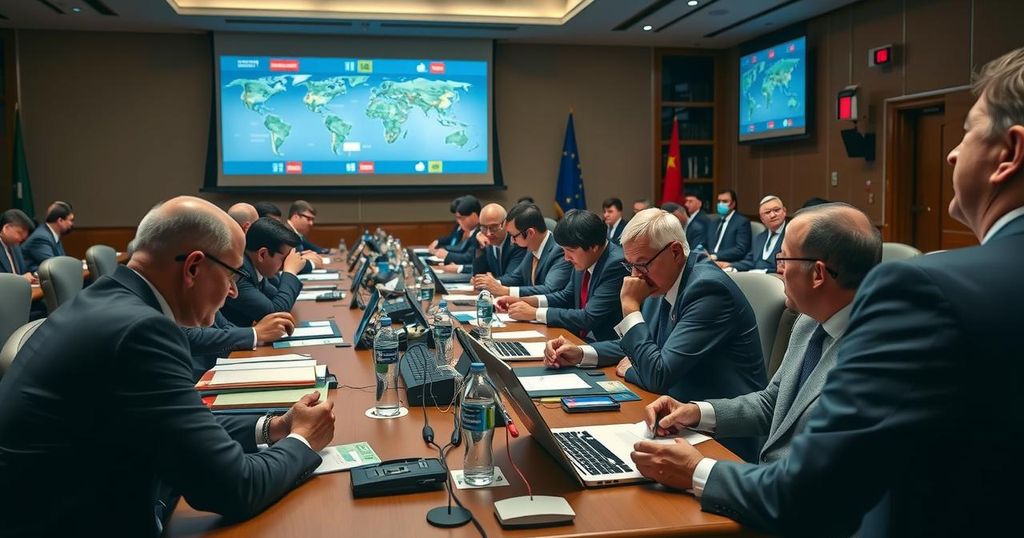UN Climate Summit in Baku Urges Action on Funding for Developing Nations

The UN climate summit in Baku emphasizes the need for substantial financial commitments to assist developing nations in combating climate change. Negotiators are urged to engage seriously as discussions indicate a required funding sum of approximately $1 trillion. While experts stress that wealthy nations must take responsibility, there are concerns regarding their intentions in the negotiations.
The United Nations climate negotiations in Baku, Azerbaijan, resumed this week, with a pressing call from UN Climate Change Executive Secretary Simon Stiell for negotiators to move beyond performative shows and engage in substantial discussions. Delegates are currently examining options to enhance funding for developing nations to assist them in transitioning towards clean energy and addressing the repercussions of climate-induced disasters. Despite the urgent need, there remains a significant disparity among countries regarding the required financial contributions, with estimates suggesting a need for approximately $1 trillion. Leading figures advocate for a collaborative approach, emphasizing that all countries bear responsibility in addressing climate change, particularly those with considerable historical emissions. Experts emphasize the importance of ensuring that financial aid does not come with strings attached, as highlighted by Teresa Anderson from ActionAid International, who expressed skepticism about the motivations behind proposing contributions from developing nations. The ongoing discussions coincide with the Group of 20 summit in Brazil, where leaders are also deliberating on climate issues, underscoring the global imperative to address environmental challenges collectively. Activists are particularly focused on holding major economies accountable for their role in global emissions, consistent with the broader objective of fostering sustainable and equitable climate policies. As global leaders continue to convene, the outcome of the negotiations could significantly influence future commitments and actions toward combating climate change, particularly among wealthier nations, who are expected to lead the way in funding efforts geared toward climate resilience and adaptation.
The article focuses on the ongoing United Nations climate summit held in Baku, Azerbaijan, where global negotiators aim to reach agreements that would benefit developing countries financially in their efforts to combat climate change. The discussions highlight the challenges in securing adequate funding for climate initiatives, with a need for engagement from both developing and developed nations. There is a particular emphasis on the disparity between countries regarding the financial contributions necessary to address climate issues, and the importance of accountability among wealthier nations is a recurring theme throughout the talks.
The climate talks in Baku signify a crucial juncture in the global effort to tackle climate change, with a focus on obtaining necessary funding for developing nations to support their transition to sustainable energy and adaptation strategies. The calls for unity and commitment from all countries, particularly those with a historical responsibility for emissions, highlight the need for a comprehensive and equitable response to the climate crisis. The outcomes from these negotiations could set key precedents for future climate action and fiscal responsibilities amongst nations.
Original Source: www.bostonglobe.com






